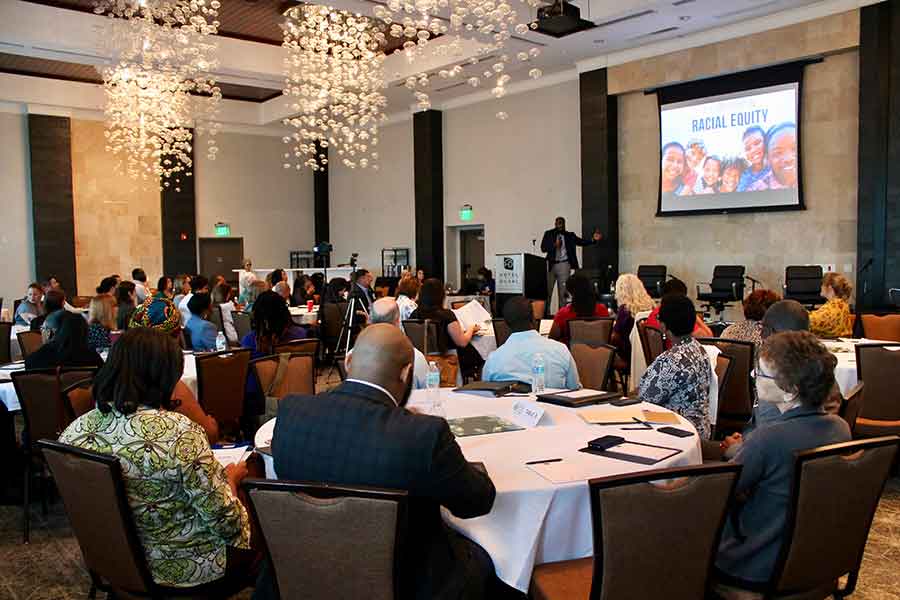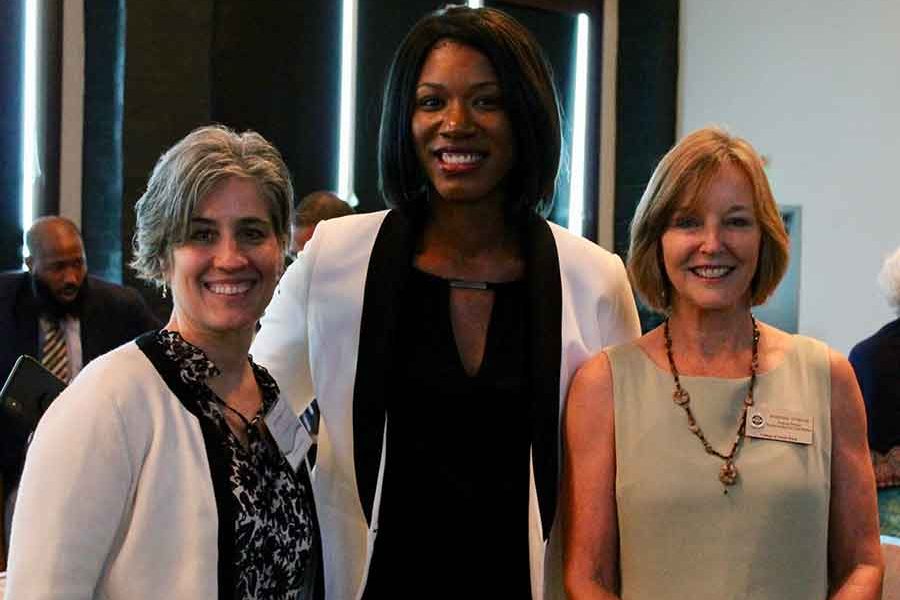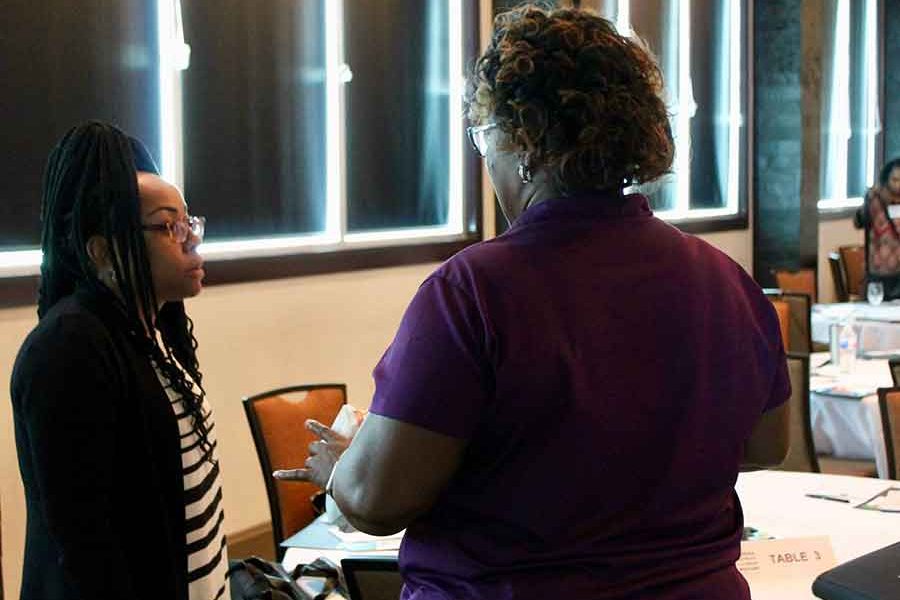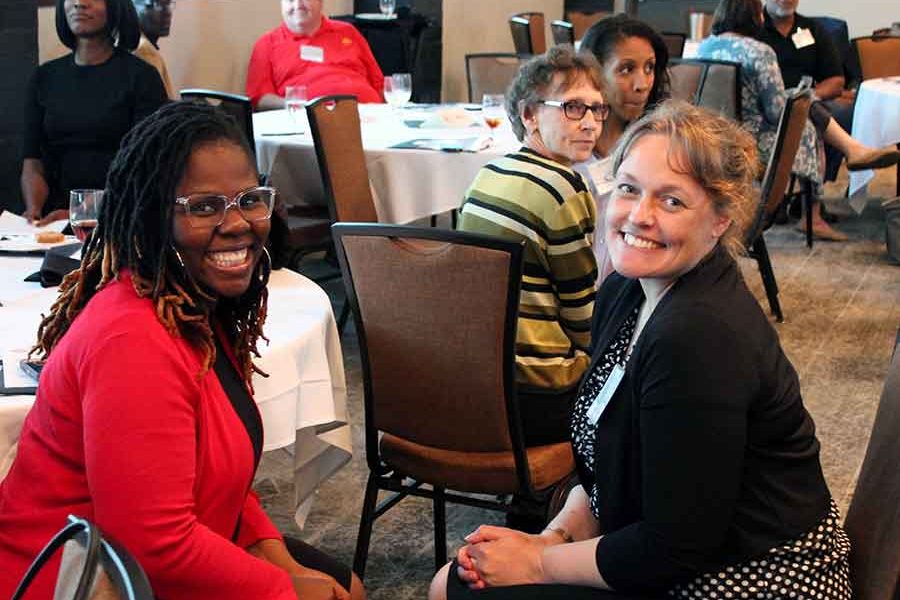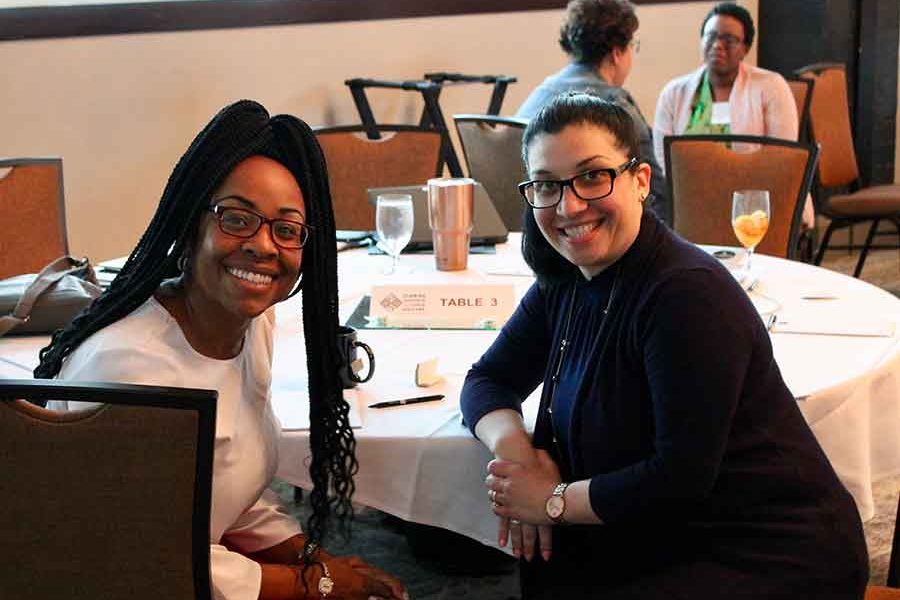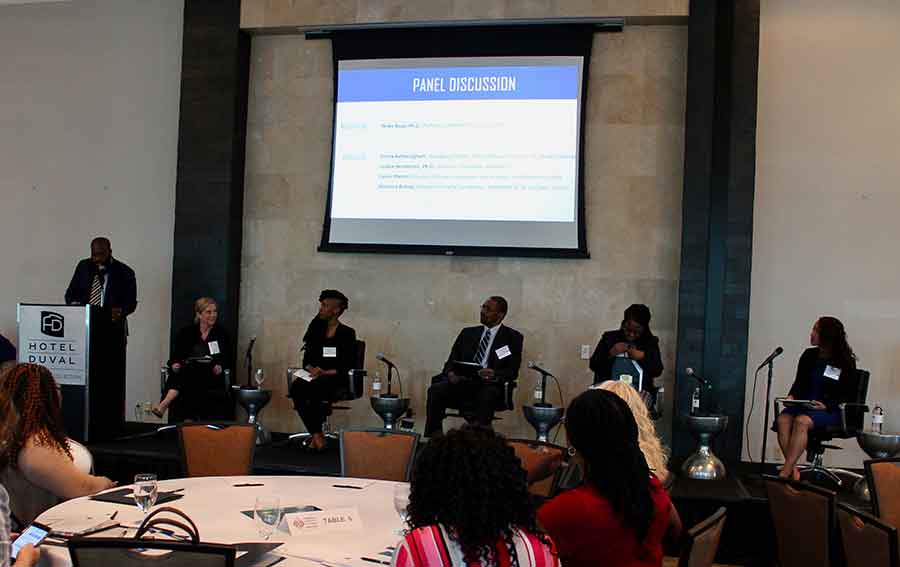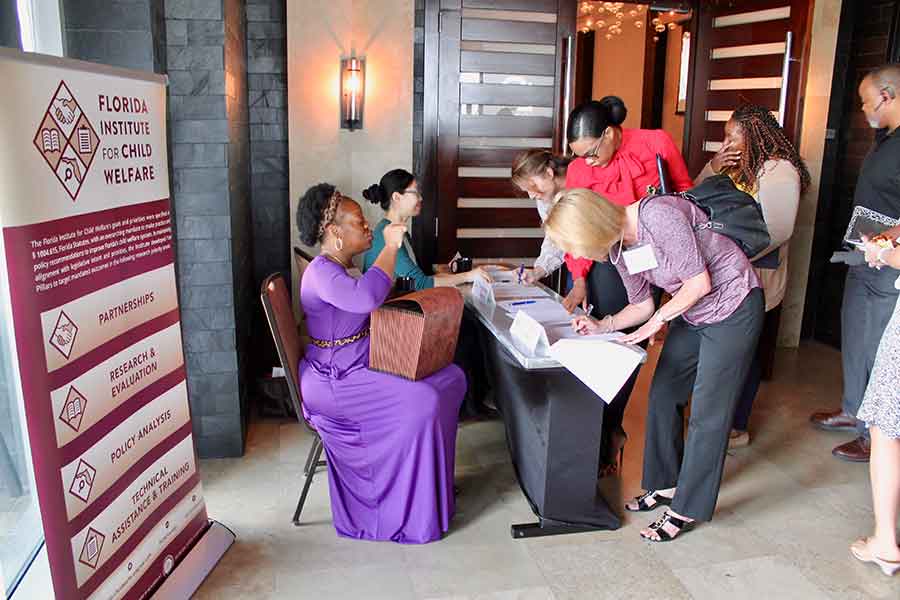
Child welfare professionals from around the state gathered at Florida State University as the Florida Institute for Child Welfare convened a Symposium on Racial Equity May 9-10 in Tallahassee.
“With this event, we have started a critical dialogue about awareness and action toward an ethical system of care for all Florida families,” said Jessica Pryce, institute director. “As our communities of color continue to fare worse on many well-being measures, I wanted Florida to be prioritizing this issue and infusing racial equity across our child welfare community and practice.”
The two-day event set out to bring awareness to racial inequities and also learn about the deep and persistent nature of systemic racism. Attendees included attorneys, guardian ad litem professionals, frontline child welfare workers, public health leaders, state administrators and educators.
The interactive event was designed to elevate a sense of urgency to accelerate a values-based approach to child welfare and to acknowledge that skin color is a risk factor for clients and their families.
Keynote speaker Corey Best, an independent consultant specializing in family engagement who works with child welfare leaders in Broward County on racial equity strategies opened the symposium. During his address, Best reminded the audience of the possible positive outcomes when all families are seen, heard and valued.
A panel of interdisciplinary experts also discussed pertinent topics and fielded questions from attendees and viewers of the event’s online live stream. The panel included Attorney Emma Ketteringham, managing director of The Bronx Defenders Family Defense Practice, which represents parents who have been accused of child abuse; Calvin Martin, director of Program Advocacy and Inclusion for Guardian Ad Litem, who trains professionals on racial identity and cultural competence; Minora Bishop, disproportionate minority contact coordinator for the Florida Department of Juvenile Justice who coordinates statewide racial equity strategies; and Zuleka Henderson, researcher and lecturer at Columbia University, whose research focuses on issues affecting black youth.
Renowned race equity trainer and facilitator Khatib Waheed led two sessions of Race Equity Learning Exchanges, which facilitate a capacity to have “courageous conversations” about race, poverty and reform. The exchanges also aim to create a safe learning environment to discuss race and stereotypes that can impact child and family outcomes and provide a learning framework to understand and address structural racism and achieving equity.
Waheed spent the first session setting the atmosphere for an interactive workshop. At the second session attendees explored their own racial identity and how it influences their lives and decisions.
“The intense engagement by our speakers and participants is further proof that racial equality is a crucial component of the child welfare agenda moving forward,” said Jim Clark, dean of the College of Social Work.
The event was a collaborative effort, organized by the Florida Institute for Child Welfare and supported by its sponsors. Sponsors included the Children’s Home Society, Sunshine Health, Casey Family Programs, FSU College of Social Work, USF Mental Health Institute and Stabilify.
Racial equity resources and presentations from the event are available at https://ficw.fsu.edu.





